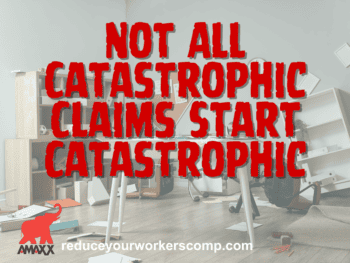The issue of traveling employees is a cause for concern when managing workers’ compensation claims. Addressing issues of injury compensability when dealing with these claims can be difficult for even the most seasoned member of the claims management team.
A General Rule: Portal to Portal Coverage
The law regarding traveling employee varies from state to state, and it is important to know and understand the law in your jurisdiction. When in doubt, consult with an attorney.
As a general rule, traveling employees receive “portal to portal” coverage under workers’ compensation laws. The implication of this rule is that an employee is covered from the time they leave for a business related trip until they return home. Important considerations when applying this rule include:
- Whether the trip was in fact “business-related” and the true purpose of the activities taking place on the trip;
- Considerations of “prohibited conduct” and whether the injury occurred while engaging in these activities; and
- Deviations that occur during work-related travel and whether it takes the employee outside the scope of their employment. Courts will often examine how the deviation took place and whether the deviation was reasonably anticipated.
Use of Alcohol or Street Drugs
The use of alcohol and street drugs is a common theme for injuries that occur to traveling employees. Generally, injuries that occur when alcohol is involved will only be found non-compensable when there is a specific written prohibition to using alcohol while traveling, or if the intoxication was the proximate cause of the work injury.
In many instances, injuries will often occur while an employee is partaking in an alcoholic beverage. This will include entertaining clients, socializing or enjoying a meal. Courts examining these issues will generally find the subsequent injuries to be compensable as it is common for people to consume these beverages in those instances.
Courts have not addressed the compensability to injuries occurring while using street drugs such as marijuana in jurisdictions where enforcement of laws banning the consumption of these substances have been relaxed. One can assume that, but for an “intoxication defense” scenario, any injury should be compensable.
Diseases and Common Ailments
Courts interpreting workers’ compensation laws have been hesitant to compensate employees, even those traveling, for illness due to common ailments. Most workers’ compensation laws specifically excluded these conditions from the definition of a “personal injury.” An example of this could include someone who flies on commercial airlines frequently and gets a nasty cold or flu-like symptoms.
As with any general rule, there are exceptions. One such instance comes from a case where the traveling employee contracts an illness common to the particular area. Olson v. Executive Travel MSP, Inc., 437 N.W.2d 645, 646, 41 W.C.D. 793, 794 (Minn. 1989). A recent outbreak of the H1N1 (Swine Flu) Influenza sparked debate regarding the compensability not only for traveling employees, but those in the workplace. As the spread of the disease diminished, so did the concern.
Issues Concerning Average Weekly Wage
Another consideration for traveling employees is the calculation of their average weekly wage (AWW). This is important as the AWW is the basis for most indemnity benefits. Members of the claim management team should pay particular attention to the following matters:
- Bonuses;
- Per Diems;
- Fringe benefits; and
- Miscellaneous rewards, including reward points for for hotels, airlines and car rentals.
Conclusions
The modern traveling employee presents many challenges for the teams handling their injury claims. It is important these team members know the law and understand how it applies to their claims.
Author Michael Stack, Principal, COMPClub, Amaxx LLC. He is an expert in workers compensation cost containment systems and helps employers reduce their work comp costs by 20% to 50%. He works as a consultant to large and mid-market clients, is co-author of Your Ultimate Guide To Mastering Workers Comp Costs, a comprehensive step-by-step manual of cost containment strategies based on hands-on field experience, and founder of COMPClub, an exclusive member training program on workers compensation cost containment best practices. Through these platforms he is in the trenches on a monthly basis working together with clients to implement and define best practices, which allows him to continuously be at the forefront of innovation and thought leadership in workers’ compensation cost containment. Contact: mstack@reduceyourworkerscomp.com.
©2015 Amaxx LLC. All rights reserved under International Copyright Law.
Do not use this information without independent verification. All state laws vary. You should consult with your insurance broker, attorney, or qualified professional.



























